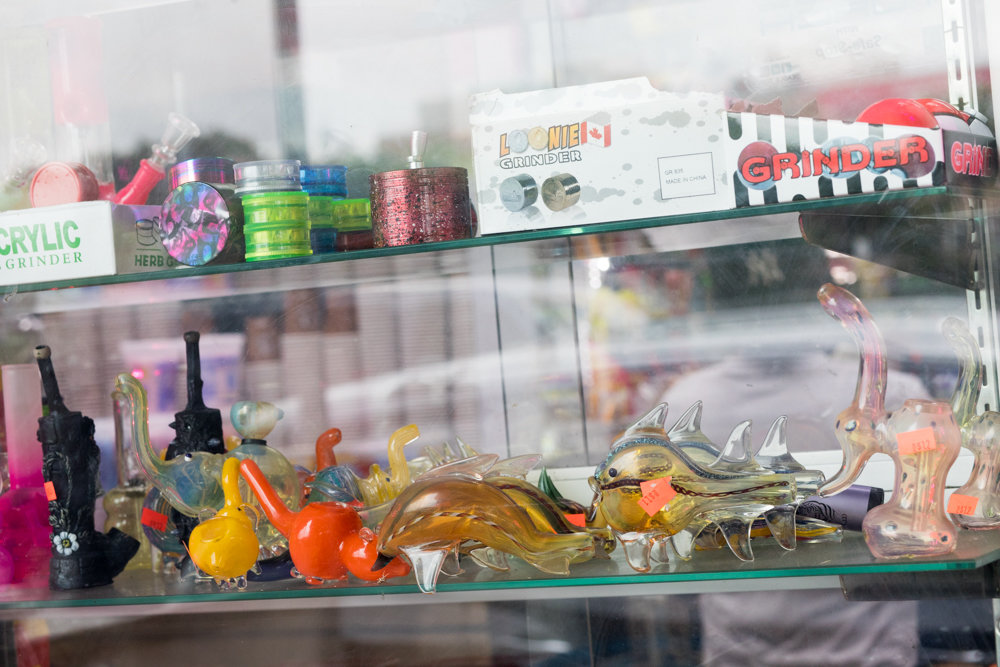What some merchants describe as an all too prevalent nuisance of people peddling bud in front of their shops in Marble Hill and Kingsbridge could become a thing of the past. That is if Gov. Andrew Cuomo’s bid to legalize marijuana forges forward.
But the state’s not quite there yet.
With the general election a month away, New York is moving closer to legalizing recreational weed. The state senate — where Republicans cling to a thin majority and aren’t keen on the concept — will be up for the taking. Some pundits predict that if Democrats win enough seats to control the chamber, the state’s course to legalization could quicken.
Although, if Cuomo’s cautious approach to legalizing medical marijuana in 2014 provides a clue, it could still be an uphill struggle.
Cuomo called on the state’s health department in January to study the pros and cons of regulated marijuana. In July, the health department presented its assessment to the governor, recommending legalization on the conclusion the positive effects of a regulated market outweigh potential negative impacts, which can be mitigated with oversight and public education.
A slew of agencies and experts found “no insurmountable obstacles” to regulating the drug. Furthermore, the report claims, regulation benefits public health by allowing for government monitoring of production, testing, labeling, distribution and sale, and to set age and quantity restrictions.
And since the state would be one of the largest potential regulated marijuana markets in the United States, there’d be an opportunity for hefty tax revenue, the report says, which could support public health, education, transportation, research, law enforcement, and economic initiatives — revamping communities from the ground up.
The report also points out marijuana criminalization has, historically, disproportionately targeted communities of color, where arrests and excessive prosecution have levied damaging economic, health and safety impacts.
Removing unfair targets
That’s just some of the reasons state Sen. Gustavo Rivera would like to see it happen.
Legalizing marijuana “would not only help us put an end to the failed drug policies that have over-criminalized low-income families and communities of color for generations, but it will help generate additional tax revenue that would bring millions” to the state annually, Rivera said, adding any legalization legislation should include a “restorative justice component that addresses previous marijuana-related convictions.”
In fact, after a New York Times investigation found major racial disparities in marijuana arrests across the city, Mayor Bill de Blasio called on the police department last May to come up with a plan to “end unnecessary arrests.” The following month, the department announced it would cut the number of arrests for smoking marijuana in public by more than half.
Terence O’Toole, deputy inspector for the 50th Precinct, had little to say about how the city’s new marijuana enforcement policy has affected policing here since it just went into effect last month.
“We really haven’t seen too much,” or enough to offer a thorough assessment, O’Toole said of the new policy. “It’s still in its early stages.”
And yet, more exploration of how to best implement a program is needed, the report said.
Meanwhile, Cuomo is asking communities to lend a hand by speaking up.
Listening to the people
In August, the governor appointed a group to draft marijuana legislation, which would still require approval of the state legislature. Now, Cuomo’s put together a series of listening sessions around the city seeking concerns, suggestions and advice about what a regulated marijuana program could look like, as well as on regulatory and logistical issues.
But from business owners, employees and customers on the streets of Marble Hill and Kingsbridge, feedback’s decidedly mixed.
At the moment, Flowers by Zenda owner Orlando Kross would like stricter enforcement. If cops cracked down more on smokers, Kross thinks he’d have less second-hand smoke-induced headaches, and his customers would be grateful, too.
“Of course it affects business — big time,” Kross said. “It’s a quality-of-life issue. I wish that pot never existed.”
Jamel Algahim, who frequents the discount store neighboring Kross’ shop, was less concerned.
“I don’t see it as much of a problem, as long as it’s used for medical reasons,” Algahim said. “But it is bothersome when young people come in smelling like marijuana.”
The main problem, however, are “people who abuse it, or use it for the wrong reasons.”
Yebi Rama, who slings pies from family-run Arturo’s pizza joint near West 225th Street, was somewhat oblivious.
“I don’t think it matters,” Rama said. The state’s “going to legalize it anyway,” although, he acknowledged, blaze-induced munchies could move more slices.
Sam Alsayedi, who identifies himself as the owner of Quick Stop Smoke Shop on West 231st Street is optimistic about legalization.
“It’s better than dealing with people outside robbing you,” Alsayedi said. “It’s going to be a legit business.”
And with recreational marijuana already legal in some other states, Alsayedi doesn’t see why it should be a problem in New York.
Community Board 8 economic development committee chair Sergio Villaverde — speaking from personal experience, not for the board — believes legalization could curb street sales.
“In Marble Hill, this has been an ongoing nuisance,” Villaverde said, where dealers are “setting up shop in front of somebody else’s business,” as opposed to operating a well-regulated enterprise, “able to be a neighbor contributing to the community, rather than a drag on it.”
Meanwhile, residents throughout the borough, city and state seem to be responding the governor’s charge.
“They’ve been engaged,” said Tyrone Stevens, a spokesman for the governor. That includes at the Bronx listening session held last month at Boricua College’s Washington Avenue campus.
“The idea is to take the input we’re receiving and apply that toward the creation of policy,” Stevens said. “The whole point of this process is to make sure that communities are heard.
“We’re trying to build a program where all communities can access the benefits, so we’re doing everything we can to go to all corners of this state, the Bronx included.”
Credit: http://riverdalepress.com

